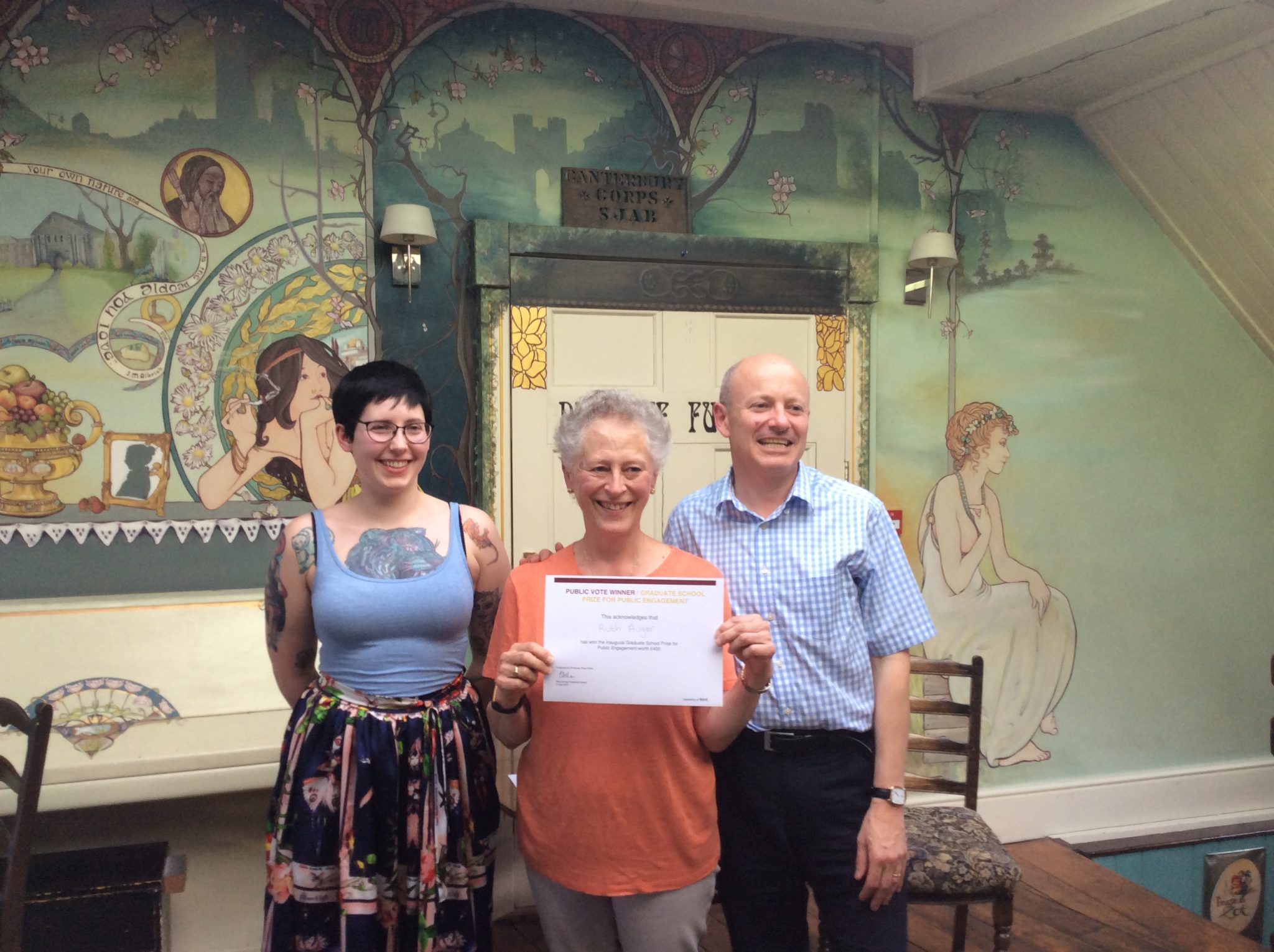Real World Research was an opportunity for current University of Kent postgraduate students to showcase their work to the general public and win funding for a project with the potential to make a real difference to a current issue. The aim was to bridge the gap between academia and the general public by providing an opportunity for current graduate students to gain experience presenting their work to a lay audience, and demonstrating to local residents the real world impact academic research can have. Prior to the event, students attended a preparatory workshop to hone their presentation skills for a non-specialist audience.
The event was organised by Laura Thomas-Walters, a PhD student from the Durrell Institute of Conservation and Ecology (DICE). Inspired by a similar event for UCL researchers, she was awarded funding from the Postgraduate Experience Awards to combine her passions for applied research and public engagement. Building on the success of this first event, Laura hopes to apply for a larger pot of funding to trial a full-day version next summer.
The inaugural Real World Research took place Thursday the 1st of June and consisted of an evening of short talks by PG students at La Trappiste, with an introduction from the new Director of the Graduate School, Professor Paul Allain. Students presented project proposals inspired by their research that they felt had the potential to make an impact on a current issue. Topics ranged from autism to homelessness via medical robotics. The event was well-attended, with 30 members of the public turning up to discuss the potential merits and difficulties of each project with the students, and voting on which project they thought had the greatest potential to make an impact. The selected student, Ruth Auger, has won a £400 Graduate School Prize for Public Engagement funding contribution and publication space in the Advanced Journal for Professional Practice.
A 90% response rate for feedback forms provided us with an excellent insight into how the event was received. In terms of attendee demographics, there was a 60/40 female/male split with the majority aged 18-50. Most had first heard about the event through word of mouth (52%), or personally knew one of the presenters (30%). 74% had at least an undergraduate degree.
The event seemed to fulfil its main objective: 96% of the respondents thought it had some effect on their understanding of the potential practical applications of university research.
86% of the respondents rated the event as at least “good”, the majority as “very good” or “excellent”. In addition, the majority of respondents described the event as “informative”, “thought-provoking”, “interesting”, and “engaging”.
When attendees were asked what they had enjoyed in particular, the most common responses were the range of topics, the chance to talk to presenters, and the opportunity to learn about real world impact. The most frequently-offered feedback for future events were the need for a quieter venue, and the inclusion of audio-visual equipment, such as a microphone or projector.
Pictured (left-right): Laura Thomas-Walters, Ruth Auger, Professor Paul Allain

